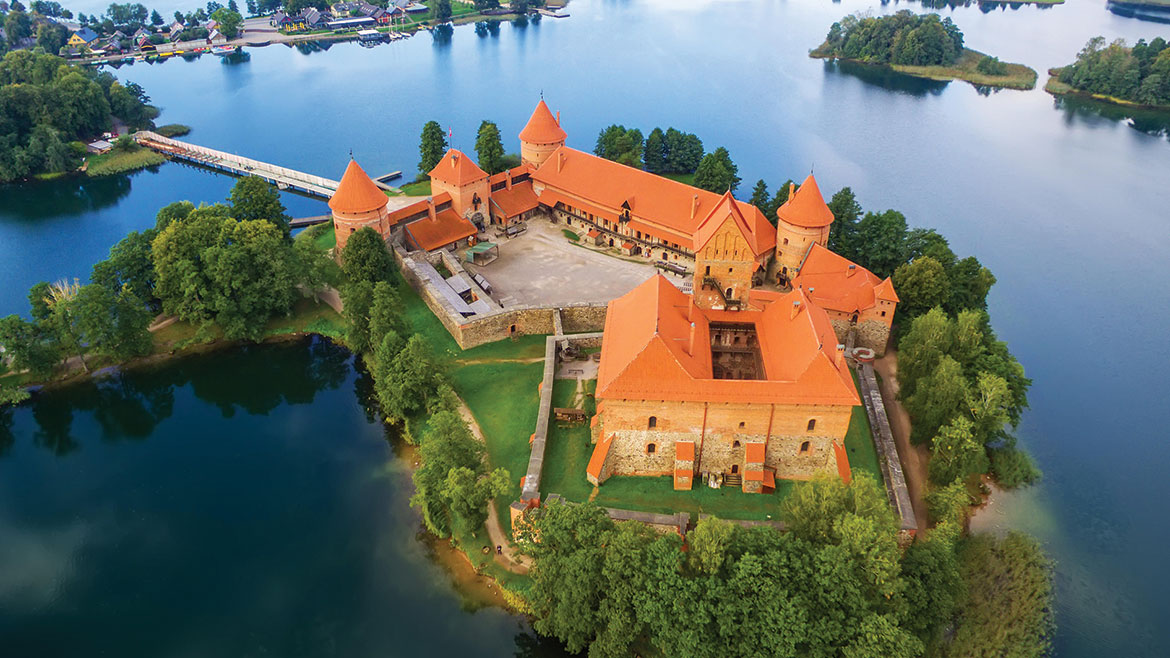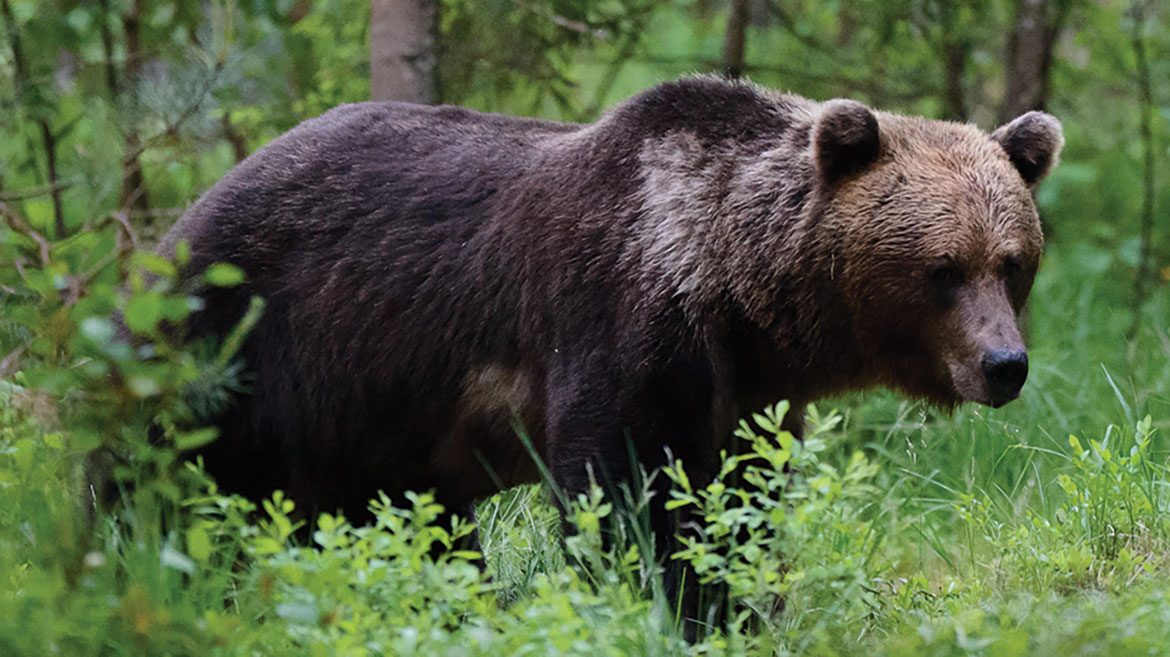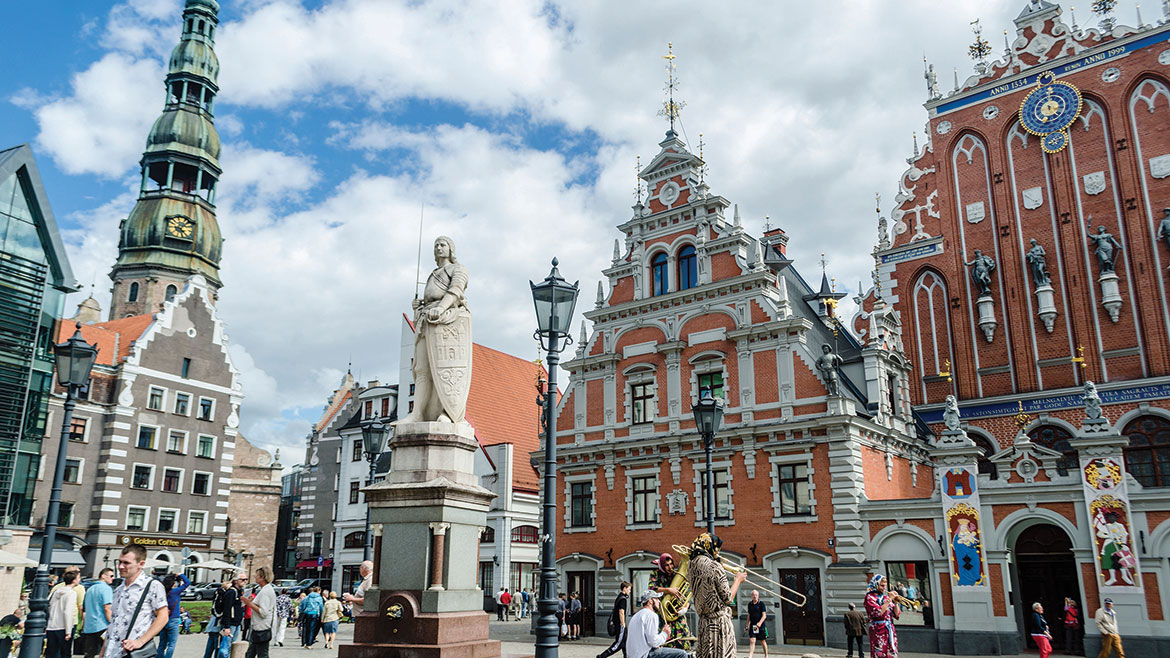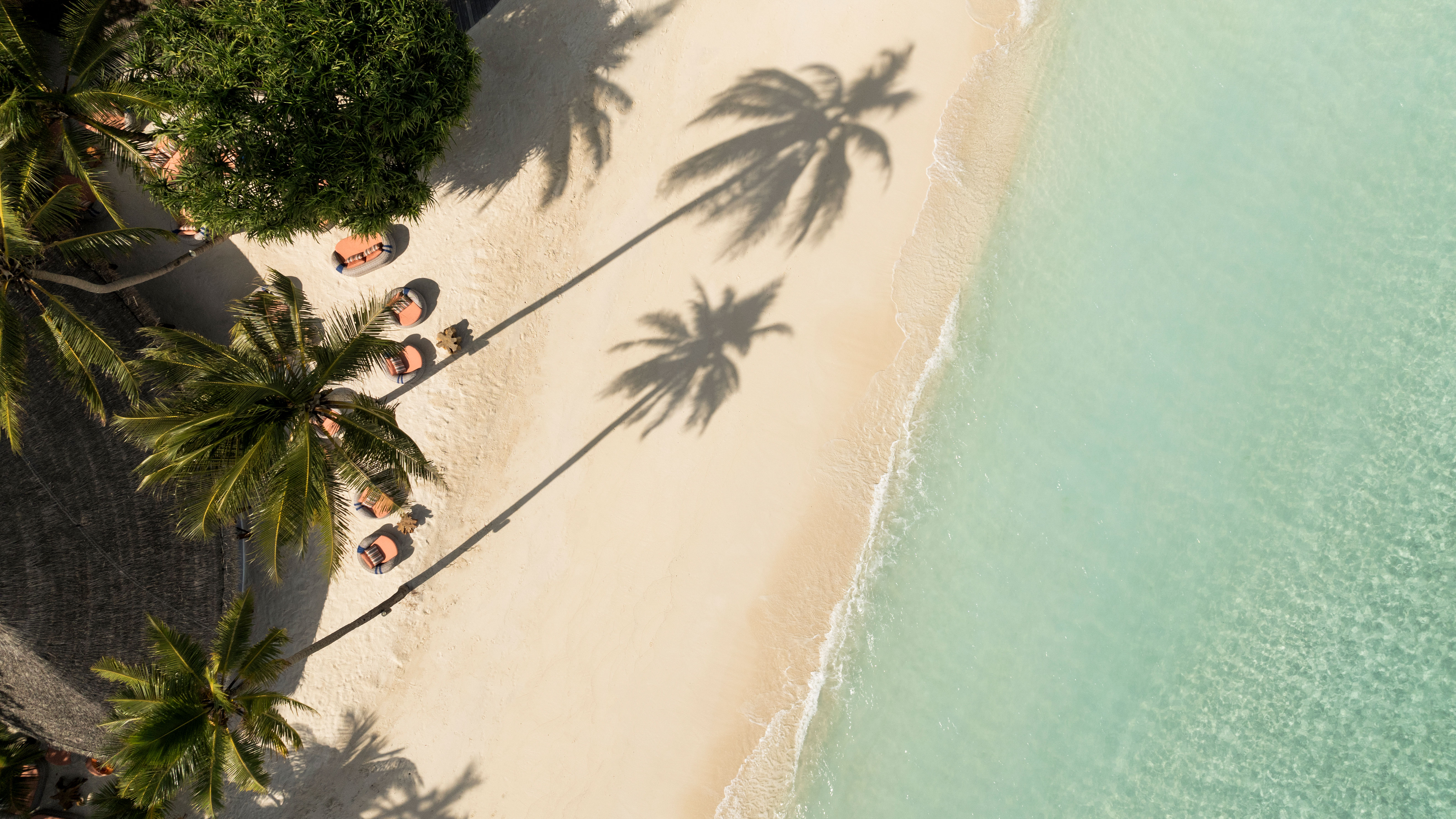
Get the latest financial news, insights and expert analysis from our award-winning MoneyWeek team, to help you understand what really matters when it comes to your finances.
You are now subscribed
Your newsletter sign-up was successful
Want to add more newsletters?
An 8am flight from Luton on a Saturday in the middle of summer is rarely a good way to start a holiday but everything ran smoothly and our Wizz Air flight landed in Vilnius, the capital of Lithuania, at lunchtime.
Through Regent Travel, we had booked a two-week fly-drive through Lithuania, Latvia and Estonia but rather than follow their suggested itinerary of driving to Tallinn and back, we opted to go one way, dropping off our rental car in Tallinn.
The three countries have much in common – excellent roads (borders are crossed almost without noticing), they all use the euro and they are at least as tech-savvy as the UK. They speak different languages; all incomprehensible, but fortunately most people speak English.
Try 6 free issues of MoneyWeek today
Get unparalleled financial insight, analysis and expert opinion you can profit from.

Sign up to Money Morning
Don't miss the latest investment and personal finances news, market analysis, plus money-saving tips with our free twice-daily newsletter
Don't miss the latest investment and personal finances news, market analysis, plus money-saving tips with our free twice-daily newsletter
National flags are ubiquitous, as are Ukrainian ones, signalling the national pride that comes with having had to struggle against invasion and occupation for 800 years. They were invaded three times during the last war alone and there is no doubt who their enemy is.
As striking is the overwhelming evidence of civic pride. Roads, streets and public spaces are completely litter free, everywhere is neat and tidy and the flower displays, both municipal and private, in Latvia and Lithuania would attract accolades from the RHS judges at the Chelsea Flower Show.
Historical buildings, often severely damaged by past wars, have been faithfully restored, even rebuilt completely from scratch. After 45 years of Soviet occupation in which national identities and history were suppressed, the last 35 years have been spent rediscovering the past.

Much of the countryside is dominated by forests
Countries of woods and lakes
With a combined area greater than England and Wales, but a population of only six million, the countryside is dominated by forests, swamps, lakes and farmland with little urban sprawl and empty roads. Nowhere is much above 1,000ft above sea level and the coastline has no shortage of beautiful sandy beaches. However, Scottish latitudes mean that it is not an obvious place for a seaside holiday outside high summer.
The capital cities – Vilnius (Lithuania), Riga (Latvia) and Tallinn (Estonia) – have medieval old towns (faithfully restored) as does Lithuania’s old capital, Kaunas.
Klaipeda was the East Prussian city of Memel until 100 years ago and a drive down the Curonian spit, reached by ferry, is not to be missed. Don’t go too far or you will end up at the border with the Russian enclave of Kaliningrad, formerly Königsberg.
Other stopping points include the attractive towns of Kuldiga, Sigulda (both in Latvia) and Tartu (Estonia). Rundale Palace, south of Riga, is magnificent and castle buffs (like me) will be in their element.
Trakai, Turaida and Cesis are well worth seeing, as are the walls encircling Old Tallinn The variety of churches, from Catholic to Orthodox to Lutheran, both in the cities and in the small towns, is exceptional. In an area where there is rarely more than a gentle hill, climbing the towers of castles, churches and town halls provides excellent exercise.

Riga’s medieval old town has been faithfully restored
Reliable hotels and great food
With one exception, our hotels were at least good and sometimes excellent. It’s worth checking these out on-line before departure rather than leaving it all on trust to Regent. The Insight guide is a good investment to identify the sights, check the itinerary and propose variations.
The quality of the restaurants was a major surprise. The days of East European stodge are long gone and there are enough Michelin-starred or recommended restaurants to merit a visit focused on eating rather than sightseeing.
In Vilnius, don’t miss the Ertlio Namas where we were served beaver paté (they are a pest in the Baltics) and chocolates flavoured with strawberry and cucumber – the best I have ever tasted. Moreover, prices by UK standards are reasonable.
The only mementoes of Soviet occupation are in the antique/junk shops. These are now prosperous, friendly and safe countries – no wonder so many of those who came to the UK 20 years ago have gone back.
This article was first published in MoneyWeek's magazine. Enjoy exclusive early access to news, opinion and analysis from our team of financial experts with a MoneyWeek subscription
Get the latest financial news, insights and expert analysis from our award-winning MoneyWeek team, to help you understand what really matters when it comes to your finances.

Max has an Economics degree from the University of Cambridge and is a chartered accountant. He worked at Investec Asset Management for 12 years, managing multi-asset funds investing in internally and externally managed funds, including investment trusts. This included a fund of investment trusts which grew to £120m+. Max has managed ten investment trusts (winning many awards) and sat on the boards of three trusts – two directorships are still active.
After 39 years in financial services, including 30 as a professional fund manager, Max took semi-retirement in 2017. Max has been a MoneyWeek columnist since 2016 writing about investment funds and more generally on markets online, plus occasional opinion pieces. He also writes for the Investment Trust Handbook each year and has contributed to The Daily Telegraph and other publications. See here for details of current investments held by Max.
-
 Review: Pierre & Vacances – affordable luxury in iconic Flaine
Review: Pierre & Vacances – affordable luxury in iconic FlaineSnow-sure and steeped in rich architectural heritage, Flaine is a unique ski resort which offers something for all of the family.
-
 Could you get cheaper loans under ‘significant’ FCA credit proposals?
Could you get cheaper loans under ‘significant’ FCA credit proposals?The Financial Conduct Authority has launched a consultation which could lead to better access to credit for consumers and increase competition across the market, according to experts.
-
 Review: Pierre & Vacances – affordable luxury in iconic Flaine
Review: Pierre & Vacances – affordable luxury in iconic FlaineSnow-sure and steeped in rich architectural heritage, Flaine is a unique ski resort which offers something for all of the family.
-
 8 of the best properties for sale with minstrels’ galleries
8 of the best properties for sale with minstrels’ galleriesThe best properties for sale with minstrels’ galleries – from a 15th-century house in Kent, to a four-storey house in Hampstead, comprising part of a converted, Grade II-listed former library
-
 The rare books which are selling for thousands
The rare books which are selling for thousandsRare books have been given a boost by the film Wuthering Heights. So how much are they really selling for?
-
 8 of the best properties for sale with beautiful kitchens
8 of the best properties for sale with beautiful kitchensThe best properties for sale with beautiful kitchens – from a Modernist house moments from the River Thames in Chiswick, to a 19th-century Italian house in Florence
-
 Review: Eliamos Villas Hotel & Spa – revel in the quiet madness of Kefalonia
Review: Eliamos Villas Hotel & Spa – revel in the quiet madness of KefaloniaTravel Eliamos Villas Hotel & Spa on the Greek island of Kefalonia is a restful sanctuary for the mind, body and soul
-
 Adventures in Saudi Arabia
Adventures in Saudi ArabiaTravel The kingdom of Saudi Arabia in the Middle East is rich in undiscovered natural beauty. Get there before everybody else does, says Merryn Somerset Webb
-
 Review: Constance Moofushi and Halaveli – respite in the Maldives
Review: Constance Moofushi and Halaveli – respite in the MaldivesTravel The Constance resorts of Moofushi and Halaveli on two idyllic islands in the Maldives offer two wonderful ways to unwind
-
 Affordable Art Fair: The art fair for beginners
Affordable Art Fair: The art fair for beginnersChris Carter talks to the Affordable Art Fair’s Hugo Barclay about how to start collecting art, the dos and don’ts, and more
